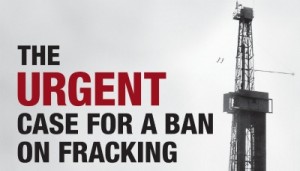Brussels — Today’s event, organised by the European Commission’s Directorate-General for Research and Innovation, fails to ask the question whether or not shale gas should be developed at all in Europe, according to Food & Water Europe. Instead, the Commission assumes future large-scale development of shale gas in the EU as its starting point, exploring how research and certain policies can facilitate its extraction.
Together with many anti-fracking groups across the EU, Food & Water Europe strongly rejects this point of departure and firmly believes that the emerging body of research about the negative climate, environmental and public health impacts of fracking makes an urgent case for a ban on fracking. In the ‘make or break’ year of the Paris climate summit, it is unacceptable that the link between climate change and unconventional fossil fuels like shale gas is not even mentioned on the conference programme.
“A conference about shale gas research that does not engage with the pressing question of whether or not such unconventional fossil fuels are compatible with science-based climate targets starts with a false premise,” said Food & Water Europe Director of EU Affairs Geert Decock, “An emerging body of research has started to document the negative climate, but also environmental and public health, impacts of fracking, which the Commission fails to properly engage with”.
Contact: Geert De Cock tel. +32 (0)2 893 10 45, mobile +32 (0)484 629.



